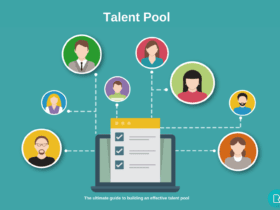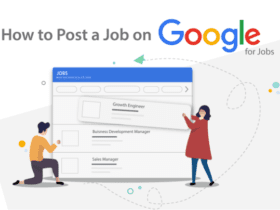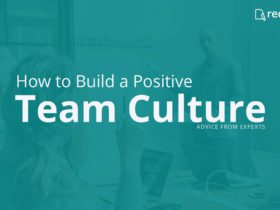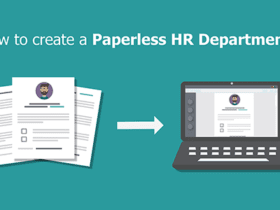

Introduction
An employee value proposition is the special benefit set that a company offers its employees in exchange for the skills, capabilities, and experience they bring to the company.
EVP is now getting inside the spotlight of companies worldwide as it is proving effective in attracting, engaging, and retaining the best people. In addition to this, EVP also elevates a company’s employer brand as a whole.
In this blog, let’s explore what is EVP, and how can you develop a captivating employee value proposition that presents your company’s unique benefits and opportunities in the best way.
Table of Contents
What is EVP?
EVP stands for Employee Value Proposition which simply is a balance of the benefits and rewards that employees receive in exchange for the skills, qualities, and experience they can offer to the position.
These benefits include financial rewards, career advancement opportunities, work-life balance, and any other perks. It also presents employees with the values, mission, social purpose, and workplace culture in the most appealing way.
The major aim of the employee value proposition is to figure out and convey all of the benefits and experiences employees can expect if they come to work in their company.
It tells them why your company is the perfect place for them to thrive allowing you to attract the right candidates who align with all of that you offer.
In addition, it also gives companies a steady platform for employer branding and experience management.
Main Elements of Employee Value Proposition (EVP)
A solid EVP is the one which sets your company apart from your competitors and is in line with what your candidates might be expecting from their dream company.
There are a few elements that make an EVP impactful which are mentioned below:
- Compensation/Financial Rewards: It includes salary, stock options, bonuses, raises & promotions, and more.
- Employee Benefits: Things like time off, holidays, insurance (health), retirement plans, flexible work, etc.
- Career Advancement Opportunities: This has leadership training, mentorship programs, college education, paid courses, travel opportunities, and others.
- Work Environment: It is made up of recognition, work-life balance, autonomy, and the likes.
- Company Culture: The presence of understanding of the company’s goals and values along with support, trust, collaboration, and team unity makes this element.
How to Create Employee Value Proposition (EVP)?
As mentioned earlier, the role of EVP is to attract and promote loyalty in employees. You can build a robust Employee Value Proposition in 5 simple steps:
Step 1: Find out your current offerings
To begin with, you need to answer questions like:
- What are your organization’s USPs or unique selling points?
- What things matter the most to your employees about your company?
(This includes things such as compensation, benefits, work-life balance growth and development opportunities, and more)
- What are your company’s values and goals?
- What practices does your competitors are doing?
- How to make your EVP stand out from the crowd?
Having these questions answered, you will get a clear idea of what your employees value and what are the things that make your company an ideal place to work. After this, you can start with the development of an effective Employee Value Proposition (EVP).
Please note that your values might get changed over time so reviewing your company’s EVP is required to make sure it keeps representing your business correctly as your business grows.
Step 2: Enlist the qualities you seek in your ideal employees
Now it’s time to consult your leadership team and outline the qualities you want your ideal candidates (you like to hire) to possess. Write down any specific characteristics, skills, and traits of these ideal candidates. With this, you’ll be able to craft your employee value proposition centering your candidates. The qualities you might consider to add can be:
- Responsible
- Motivated
- Self-driven
- Adaptability
- Emotional Intelligence
For instance, if you’re looking for motivated employees, you can offer potential candidates with career development/advancement opportunities. This exercise will let you attract candidates with the qualities you wish in your future employees.
Step 3: Survey your current employees to know their needs and wants
Not only hiring new candidates is crucial but also retaining your existing people is necessary for overall business success. Ask your employees about things they appreciate about your company and the aspects that need improvement by preparing a list of questions. Utilize this list to determine the opportunities that benefit the most for your employees.
With your employee value proposition centered around your employees, they will feel find a genuine reason to stay at your company. This makes your employees satisfied and they also demonstrate the same publicly. And when candidates see the positive energy of your employees and the passion they have for it, it makes them attracted to join your organization.
Here are a few questions for your reference that you can add to your survey:
- What do you like the most about working in this company?
- Which of the perks and benefits we currently provide do you consider your favorites?
- Which opportunities would you like us to offer?
- Do you find the career paths at your company clear?
- Are you find the work you’re doing meaningful?
- What support do you expect to receive from our company that will aid your career growth?
- In your perspective, what things make this company unique?
Pro tip: To collect some useful feedback you can also leverage exit interviews. You can then leverage this feedback to craft a solid EVP.
Step 4: Direct your EVPs toward every candidate
For attracting the right set of audience (applicants), you need to customize your messaging towards the candidates you wish to hire.
For example, if you’re hiring for entry-level roles with candidates with a passion to learn and grow, you would want your EVP to highlight benefits that support their drive like any kind of growth, career development, or tuition reimbursement opportunities.
Even if you’re setting your messaging around a specific audience, each EVP needs to reflect your company’s overall values and career goals.
Step 5: Circulate your Employee Value Proposition (EVP)
Once your EVP is defined, sharing it with your potential candidates becomes obvious. But how would you do it?
To spread your EVP effectively you can incorporate it into job descriptions, the company website, at the time of interviews, your social media channels, offer letters, and other aspects of your hiring process.
You need to note that your EVP’s goal is to let you attract, hire, and retain your ideal candidates for your business. That’s why it’s crucial for the candidates to be aware of the things that set your company apart.
What’s the Importance of Employee Value Proposition?
Putting efforts in your employee value proposition can have substantial benefits over your business. Let’s see how it benefits your organization with the points below:
- Attract & retain exceptional talent
An genuine and well-defined EVP lets you concentrate the unique things you offer as an employer by bringing the benefits and opportunities present for employees in your company.
It makes attracting and retaining people who can relate with your offerings and can thrive in your organization.
According to Gartner – “Organizations that effectively deliver on their EVP can decrease annual employee turnover by 69%”
- Help engage your workforce
An effective EVP can give your employees the clear understanding of your company’s mission, vision, and goals. This eventually results in engaging your employees better and increase their commitment to work.
- Elevate your company’s performance & growth
When your workforce is engaged, productive, and satisfied, the company’s business will get a boost which thus will result in profitability and growth. To support this notion a survey from Gallup shows that teams that are highly engaged can increase profitability by 23% and customer loyalty by 10%
- Cut down costs on recruitment
When you successfully retain your best people, the frequency of spending money on hiring and retention will become quite less.
- Enables better transparency
EVP lets your company to be effectively communicate openly and honestly (increasing transparancy) about the expectations from employees and what you promise them in return. This translates into establishing mutual trust and respect between the company and its people.
Employee Value Proposition (EVP) FAQs:
How to measure employee value proposition?
You can measure your employee value proposition (EVP) by tracking employee satisfaction, engagement levels, retention rates, and feedback on alignment with company culture and benefits.
What’s the difference between employee value proposition vs employer branding?
Employee Value Proposition (EVP) is the unique offering a company provides to employees, while employer branding focuses on how the company is perceived externally.
How do you write a good employee value proposition?
By highlighting unique benefits, growth opportunities, and company culture, and aligning it with employee needs and aspirations, you can easily craft a compelling employee value proposition.
















